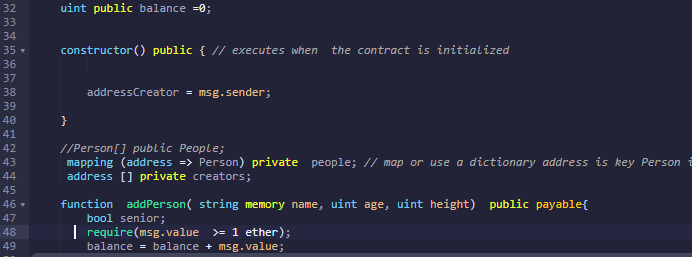Hi @camarosan,
Sorry this reply is 2 weeks after you asked the original question, but I’ve noticed that you didn’t get a reply and your questions are interesting ones… so… hopefully, better late than never… 
In Solidity (unlike JavaScript) we define the data type when declaring a variable. This means that if we want to initialise a variable with its data type’s zero-equivalent value, then we can leave it unassigned, and Solidity will assign the zero-equivalent value to it by default:
uint private variable; // variable = 0
int private variable; // variable = 0
bool private variable; // variable = false
string private variable; // variable = ""
Here is a link to a useful discussion about this:
https://ethereum.stackexchange.com/questions/84270/why-solidity-doesnt-use-null-and-undefined
Yes, it will consume a small amount of additional gas because of this.
Yes, you can add more code and more operations to a modifier in addition to a require statement, but I would say that there is a reason why you shouldn’t do that in this particular case:
It is better practice, and almost certainly safer from a risk management perspective, to perform all of the require checks before making changes to a contract’s state (here, increasing the balance). Even though your modifier increases the balance by msg.value before checking that age < 150, it is true that if the age check then fails, all of the operations performed previously in the function call (including the balance increase) will still be reverted. However, the more operations (and especially changes to state) that we allow to be performed before a potential revert can be triggered, the more we are increasing the risk of introducing vulnerabilites into our code. In addition, even though all operations would be reverted, the gas already consumed by each operation isn’t refunded.
You should also bear in mind that the whole point of using a modifier is to avoid code duplication across multiple functions. The more functionality you add to a modifier, the less reusable it becomes. In this particular case, I think it is clear that whenever calling a function requires a payment, then this amount would also need to be added to the overall contract balance, but, generally speaking, you should certainly think carefully about whether you are restricting your modifier’s usability by adding additional code to it. We should also remember that our code is generally clearer and more secure, the more modular it is, and so it’s good practice to try to allocate code for different tasks to separate functions and modifiers. However, again, there is certainly a case to be made here that increasing the balance by the payment amount is part of the same task as checking that the amount is sufficient.
I hope this goes some way towards answering your questions. Do let us know, though, if you are still unsure about anything. Keep up the great work! 








 In a re-entrancy attack, external code hijacks your contract during execution making it behave differently to how it should. A transfer of funds to an external contract could trigger something known as a fallback function in the external contract, which, if malicious, could call the withdraw function in our contract multiple times until the contract’s ether balance is reduced to zero. If our code reducing the caller’s balance for the amount transferred is placed after this “attack loop”, then the require statement placed at the beginning of the function body will never throw, because the caller’s recorded balance in the mapping isn’t reduced each time the function is re-entered. We can prevent this type of attack by adjusting the internal state of our contract for the effect of the transfer before the actual external transfer takes place: the require statement would then throw whenever the caller’s fund balance is insufficient to meet the amount requested during one the attack iterations.
In a re-entrancy attack, external code hijacks your contract during execution making it behave differently to how it should. A transfer of funds to an external contract could trigger something known as a fallback function in the external contract, which, if malicious, could call the withdraw function in our contract multiple times until the contract’s ether balance is reduced to zero. If our code reducing the caller’s balance for the amount transferred is placed after this “attack loop”, then the require statement placed at the beginning of the function body will never throw, because the caller’s recorded balance in the mapping isn’t reduced each time the function is re-entered. We can prevent this type of attack by adjusting the internal state of our contract for the effect of the transfer before the actual external transfer takes place: the require statement would then throw whenever the caller’s fund balance is insufficient to meet the amount requested during one the attack iterations.